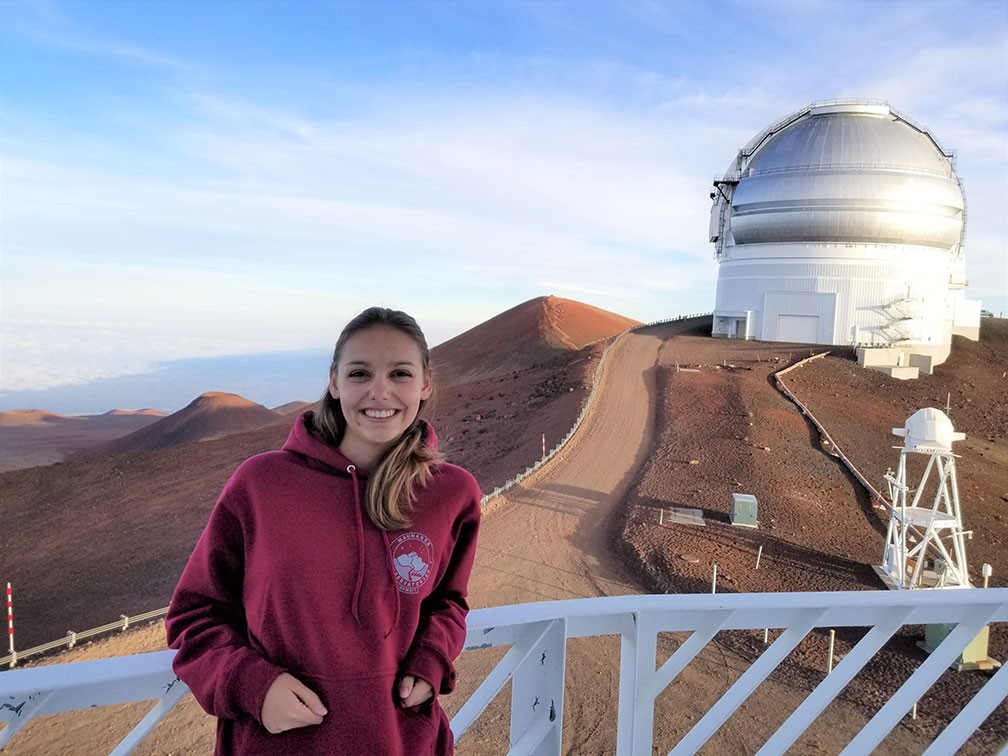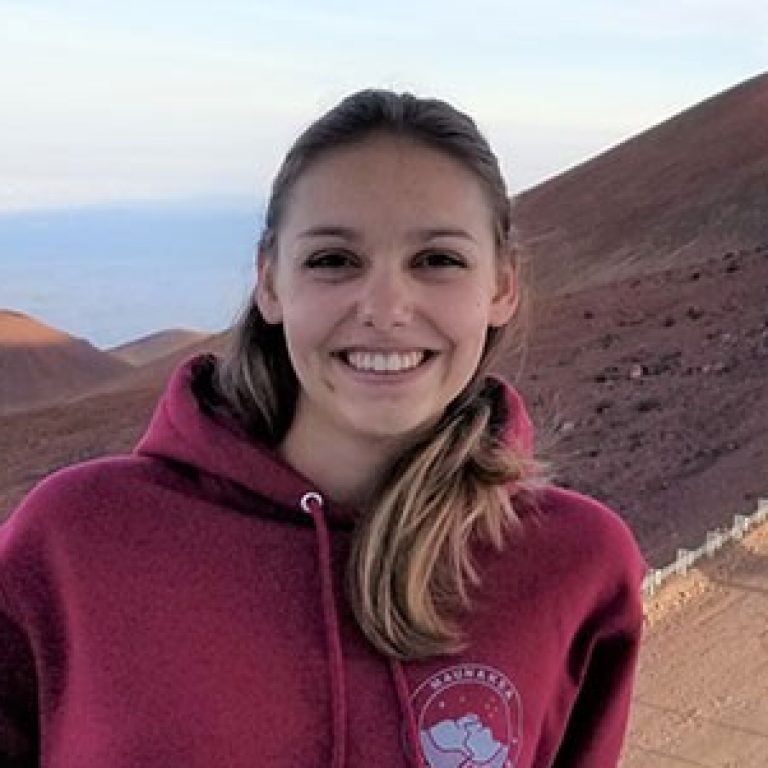Mariya Krasteva
Bachelor of Science
Honours in Physics (Co-op)
Co-op was her launchpad to international astrophysics
From Montreal to the European Space Agency, Mariya Krasteva’s independent thinking opened doors
Why did you choose Co-op?
I knew Co-op is meant for you to get out into the world. I was able to travel and to ask, how is physics used in the world? As a physics student imagining the future, you see yourself finding these ground-breaking theorems — but you can’t quite picture how. With Co-op, I got to see what it is to be a real researcher.
Where did you Co-op terms lead you?
Each internship was life-changing in its own way. Working as a radio astronomy researcher, I learned that astrophysics is just such an interesting field.
At my second internship, in Germany [University of Düsseldorf] I was a research assistant in quantum optics. It was nothing to do with astrophysics or data analysis or coding. It was really experimental stuff, in a lab. The entire way of doing things in Europe is so different, from getting your breakfast to doing research.
At the European Space Agency [Gaia Mission science trainee, Noordwijk, Netherlands], I got to see the space industry as a whole, since the agency is an entire gigantic campus with people from all over Europe. I took advantage of being able to email anyone and I set up a series of small informational interviews to ask, what do you do in your life? I realized the spectrum of possibility is huge. It opened my eyes to a whole other world.
I applied for a research grant because I really wanted to work in an observatory [Instrumentation intern, Canada-France Hawaii Telescope, Hilo, Hawaii]. My grant application successful mainly because of the experience I gained through my three previous Co-op terms.

Hawaii is one of the greatest sites in the world for astronomy because you’re in the middle of the ocean where there’s very little light pollution. The observatory is on top of a volcano, so you’re up high, without as many effects from the atmosphere. Seeing a real observatory and those instruments blew my mind. I gained insight into the major impact of placing the right instrument where light is collected. I decided to focus on instrumentation in astronomy for grad studies.
The experience I got through my internships also helped me stand out when I applied to go to the CalTech Space Challenge. They only select 32 people out of 600 applicants.
What made Concordia the right place for you?
I like doing things my own way. Being in a small, flexible program made me unafraid to push the boundaries and do something new.
Mariya is now pursuing an MSc in Astronomy and Instrumentation at Leiden University in the Netherlands.
